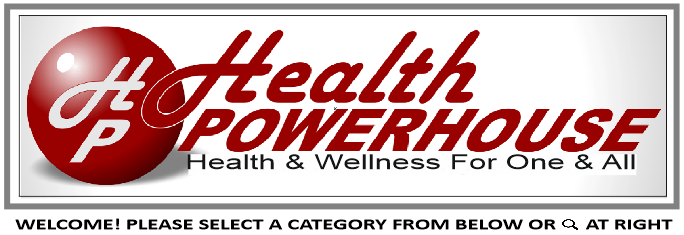Acne Prevention & Treatment
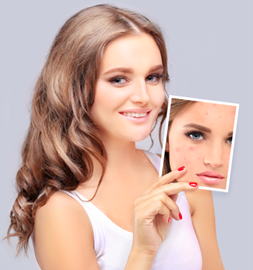
What is the Best Acne Treatment –
Expert Tips for Clearer Skin :
Acne Diagnosis and Treatment
Acne is a common skin condition that affects millions of people worldwide. It can be frustrating and even embarrassing, especially when it seems like nothing you do can make it go away. However, there are many effective treatments and preventions available that can help you manage and even eliminate your acne. Here we set out to educate you in the best acne treatments available today.
One of the most important things you can do to prevent acne is to keep your skin clean. This means washing your face twice a day with a gentle cleanser and avoiding harsh scrubs or exfoliants that can irritate your skin. You should also avoid touching your face with your hands, as this can transfer bacteria and oil from your hands to your skin.
If you do develop acne, there are many treatments available that can help. Over-the-counter acne treatments like benzoyl peroxide and salicylic acid can be effective for mild cases of acne, while prescription medications like retinoids and antibiotics may be necessary for more severe cases. Your dermatologist can help you determine the best treatment plan for your individual needs.
Causes of Acne: Understanding Acne Basics
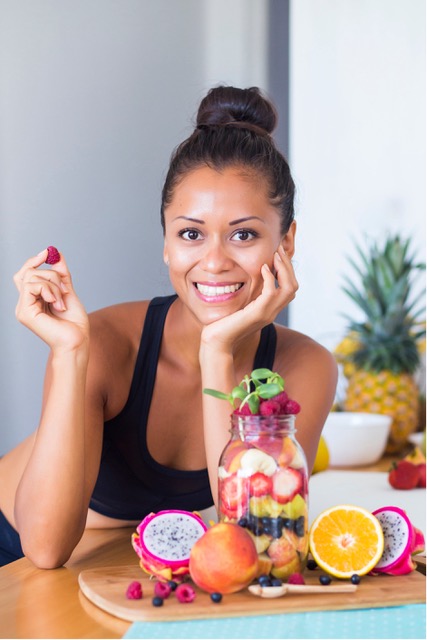
The exact cause of acne is still not fully understood, but there are several factors that can contribute to its development. Here are some of the most common causes of acne:
- Hormones: Changes in hormone levels, such as those that occur during puberty, menstruation, pregnancy, and menopause, can trigger acne. Hormones called androgens stimulate the production of oil in the skin, which can clog pores and lead to pimples or spots
- Genetics: Acne can run in families, suggesting that there may be a genetic component to the condition. If your parents or siblings have had acne, you may be more likely to develop it too.
- Diet: Some studies have suggested that certain foods, such as dairy products, high-glycemic-index foods, and foods high in saturated and trans fats, may contribute to acne. However, more research is needed to confirm these associations.
- Stress: Stress can trigger the release of hormones that can increase oil production in the skin and lead to acne. Finding ways to manage stress, such as through exercise, meditation, or therapy, may help prevent acne.
- Medications: Certain medications, such as corticosteroids, androgens, and lithium, can cause acne as a side effect. If you are taking any medications and are experiencing acne, talk to your doctor about alternative treatments.
- Environmental factors: Exposure to pollutants, humidity, and certain types of cosmetics and skincare products can also contribute to acne. Avoiding these triggers and using non-comedogenic (non-pore-clogging) products may help prevent acne.
Acne is a complex condition with multiple causes. By understanding the factors that can contribute to acne, you can take steps to prevent and treat it effectively.
Prevention and Treatment of Acne Vulgaris
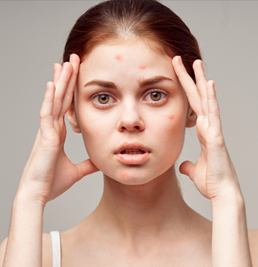
Acne vulgaris is a common skin condition that affects many people, especially younger people. Fortunately, there are various ways to prevent or treat acne vulgaris. In this section, we will discuss some of the ways you can prevent and treat acne vulgaris.
Lifestyle Changes
Making some lifestyle changes can help prevent acne vulgaris. Here are some tips:
- Wash your face twice a day with a gentle cleanser.
- Avoid touching your face with your hands.
- Use oil-free cosmetics and skincare products.
- Avoid wearing tight clothing that may irritate your skin.
- Avoid excessive sun exposure, which can worsen acne.
Topical Treatments: A list of antibiotics for acne
Topical treatments are applied directly to the skin and can help reduce acne vulgaris. Here are some common topical antibiotics for acne:
- Benzoyl peroxide: This medication kills bacteria and helps unclog pores.
- Retinoids: These medications help unclog pores and reduce inflammation.
- Salicylic acid in acne treatment: This medication helps unclog pores and reduce inflammation.
Oral Medications – Best Medicine for Pimples…
Acne Scar Treatment: In some cases, oral medications may be necessary to treat acne vulgaris. Here are some common oral medications:
- Antibiotics: These medications kill bacteria and reduce inflammation.
- Hormonal therapy: This type of therapy is used for women with hormonal acne.
- Isotretinoin: This medication is used for severe acne and can reduce oil production in the skin.
It is important to note that some medications may have side effects, so it is important to talk to your healthcare provider before starting any new treatment.
By making some lifestyle changes and using topical and oral treatments, you can help prevent and treat acne vulgaris. Remember to be patient and consistent with your treatment, as it may take several weeks to see results. Remember you are not on your own, you can usually get a prescription for acne treatment from your doctor.
Back Acne Prevention and Treatment
If you’re experiencing back acne, you’re not alone. Back acne, also known as “bacne,” is a common skin condition that can be caused by a variety of factors, including genetics, hormones, and lifestyle habits. Fortunately, there are several effective ways to prevent and treat back acne.
Acne Prevention
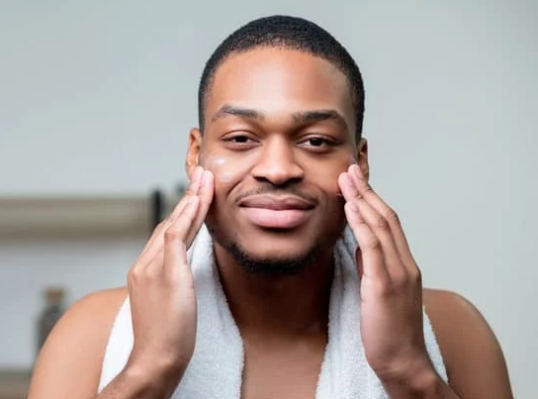
Preventing back acne involves maintaining good hygiene and making lifestyle changes that can help keep your skin healthy and clear. Here are some tips to help prevent back acne:
- Shower after sweating: Sweat can clog your pores and lead to acne breakouts, so it’s important to shower as soon as possible after sweating. This is especially important if you exercise regularly or live in a hot, humid climate.
- Wear loose-fitting clothing: Tight clothing can trap sweat and bacteria against your skin, which can lead to acne breakouts. Opt for loose-fitting clothing made from breathable materials like cotton.
Avoid harsh chemicals: Harsh chemicals found in some soaps, shampoos, and laundry detergents can irritate your skin and lead to acne breakouts. Look for products that are labeled “non-comedogenic” or “oil-free.”
RELATED ARTICLES:
Cannot Get To Sleep
Yoga for Better Health
How To Treat Anxiety Disorders
Treatment – What is The Best Cure For Acne?
Tips for clearing acne: If you already have back acne, there are several effective treatment options available. Here are some ways to treat back acne:
- Topical treatments: Topical treatments like benzoyl peroxide, salicylic acid, and retinoids can help unclog pores and reduce inflammation. These treatments are available over-the-counter or by prescription.
- Oral medications: In some cases, oral medications like antibiotics or hormonal treatments may be necessary to treat back acne. These medications are available by prescription only.
- Professional treatments: If your back acne is severe, you may benefit from professional treatments like chemical peels, laser therapy, or photodynamic therapy. These treatments are available through a dermatologist.
Preventing and treating back acne involves maintaining good hygiene, making lifestyle changes, and using effective treatments. With the right approach, you can keep your skin healthy and clear.
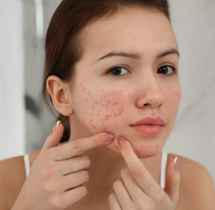 Cystic Acne on Chin Prevention and Treatment
Cystic Acne on Chin Prevention and Treatment
Cystic acne on your chin can be very painful and frustrating. However, there are several steps you can take to prevent and treat it effectively.
Prevention
Preventing acne is always better than cure. Here are a few things you can do to prevent cystic acne on your chin:
- Keep your skin clean and avoid touching your face with dirty hands.
- Wash your face twice a day with a gentle cleanser that is suitable for your skin type.
- Avoid using oily or greasy cosmetics, especially on your chin area.
- Follow a healthy diet that includes plenty of fruits and vegetables, and avoid consuming too much sugar and dairy products.
- Manage your stress levels by practicing relaxation techniques such as meditation, yoga, or deep breathing exercises.
Treatment: How to cure acne naturally in a few days?
If you already have cystic acne on your chin, here are some effective treatments that can help you get rid of it:
- Acne Topical treatments: You can use over-the-counter creams or gels that contain benzoyl peroxide, salicylic acid, or retinoids. These products can help unclog your pores and reduce inflammation.
- Acne Treatment Oral Antibiotics: If your cystic acne is severe, your dermatologist may prescribe oral medications such as antibiotics, isotretinoin, or hormonal therapy (for women).
- In-office procedures: Your dermatologist may also recommend in-office procedures such as corticosteroid injections, chemical peels, or laser therapy to treat your cystic acne.
Conclusion: Best Acne Treatment for Adults
Cystic acne on your chin can be a difficult condition to manage, but with the right prevention and treatment strategies, you can reduce its severity and frequency. Remember to consult your dermatologist if your cystic acne is severe or persistent, and follow their advice carefully to achieve the best results.
Acne Rosacea Prevention and Treatment
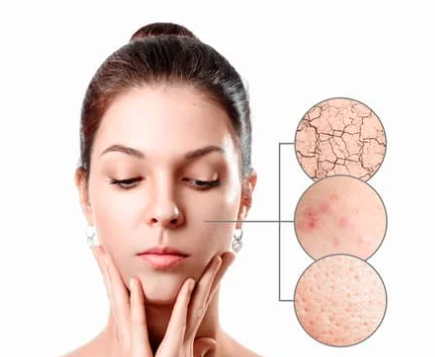
If you are suffering from acne rosacea, there are several steps you can take to treat it. Here are some tips to help you manage your acne rosacea:
Prevention
- Identify your triggers: Certain foods, drinks, and activities can trigger rosacea flare-ups. Keep a diary to help you identify your triggers and avoid them.
- Protect your skin: Protect your skin from the sun by wearing a hat, using sunscreen, and avoiding direct sunlight during peak hours.
- Be gentle with your skin: Avoid using harsh cleansers and scrubs that can irritate your skin. Use gentle, non-comedogenic products that won’t clog your pores.
- Manage stress: Stress can trigger rosacea flare-ups. Practice stress-reducing activities such as yoga, meditation, and deep breathing exercises.
Treatment
- Topical treatments: Prescription topical treatments such as metronidazole and azelaic acid can help reduce redness and inflammation. Over-the-counter treatments containing salicylic acid or benzoyl peroxide can also be effective.
- Oral antibiotics: Antibiotics such as doxycycline and tetracycline can help reduce inflammation and kill bacteria that contribute to acne rosacea.
- Laser therapy: Laser therapy can help reduce redness and inflammation by targeting blood vessels in the affected area.
- Lifestyle changes: Making lifestyle changes such as avoiding triggers, managing stress, and protecting your skin can also help reduce the severity of acne rosacea.
Remember, it may take some trial and error to find the right combination of treatments and prevention strategies that work for you. Be patient and consistent in your efforts to manage your acne rosacea.
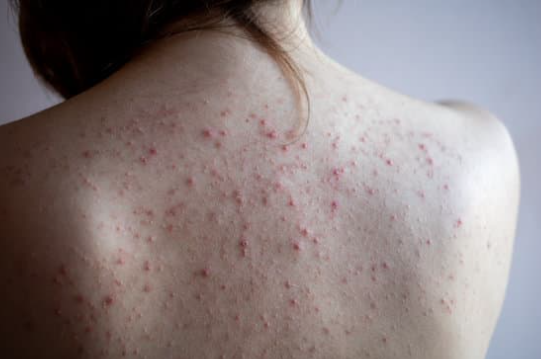
Complete Guide to Acne Prevention, Treatment, and Remedies
Acne is a common skin condition that affects many people, especially during their teenage years. While it can be frustrating and embarrassing, there are many ways to prevent and treat acne. In this section, we will discuss a complete guide to acne prevention, treatment, and acne remedies.
Dietary Changes
Your diet can play a significant role in preventing and treating acne. Some foods can trigger acne outbreaks, while others can help improve your skin’s health. Here are some dietary changes you can make to prevent and treat acne:
- Avoid processed and junk foods that are high in sugar and unhealthy fats.
- Eat more fruits and vegetables that are rich in antioxidants and vitamins.
- Increase your intake of omega-3 fatty acids, found in fish, nuts, and seeds.
- Drink plenty of water to keep your skin hydrated and healthy.
Natural Remedies: Bacterial Acne vs Hormonal Acne
There are many natural remedies that you can use to prevent and treat acne. These remedies are often gentler on your skin than harsh chemicals and medications. Here are some natural remedies you can try:
- Tea tree oil: This essential oil has antibacterial properties that can help reduce inflammation and prevent acne.
- Aloe vera: This plant has anti-inflammatory properties that can help soothe and heal acne-prone skin.
- Honey: This natural antibacterial can help reduce acne-causing bacteria on your skin.
- Green tea: This tea is rich in antioxidants that can help reduce inflammation and prevent acne.
Medical Procedures
In some cases, medical procedures may be necessary to treat severe acne. Here are some medical procedures that your doctor may recommend:
- Topical medications: These medications are applied directly to your skin and can help reduce inflammation and prevent acne.
- Oral medications: These medications are taken orally and can help reduce inflammation and prevent acne.
- Chemical peels: This procedure involves applying a chemical solution to your skin to exfoliate and reduce acne.
- Laser therapy: This procedure uses light to kill acne-causing bacteria and reduce inflammation.
Remember, everyone’s skin is different, and what works for one person may not work for another. It’s essential to work with your doctor or dermatologist to find the best prevention and treatment plan for your acne.
Conclusion
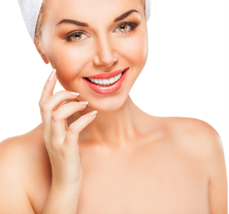 In conclusion, managing acne requires a combination of preventive measures and treatment options. By understanding the causes of acne, you can take steps to prevent it from occurring. Maintaining a healthy lifestyle, such as eating a balanced diet, staying hydrated, and getting enough sleep, can also help prevent acne.
In conclusion, managing acne requires a combination of preventive measures and treatment options. By understanding the causes of acne, you can take steps to prevent it from occurring. Maintaining a healthy lifestyle, such as eating a balanced diet, staying hydrated, and getting enough sleep, can also help prevent acne.
When it comes to treating acne, there are many options available. Topical treatments, such as retinoids and benzoyl peroxide, are effective for mild to moderate acne. For severe acne, oral medications, such as antibiotics and isotretinoin, may be necessary. It is important to work with a dermatologist to determine the best treatment plan for your individual needs.
Natural Remedies and Alternative Treatments
In addition to medical treatments, there are also natural remedies that may help improve acne. Tea tree oil, for example, has antibacterial properties and can be applied topically to reduce inflammation and kill acne-causing bacteria. Aloe vera, honey, and green tea are other natural remedies that may help soothe and heal acne-prone skin.
Remember, treating acne takes time and patience. It may take several weeks or months to see results from a new treatment. Be consistent with your skincare routine and follow your dermatologist’s advice for the best results.
By taking steps to prevent acne and using effective treatments, you can achieve clearer, healthier skin.
Acne Prevention and Treatment:
Frequently Asked Questions
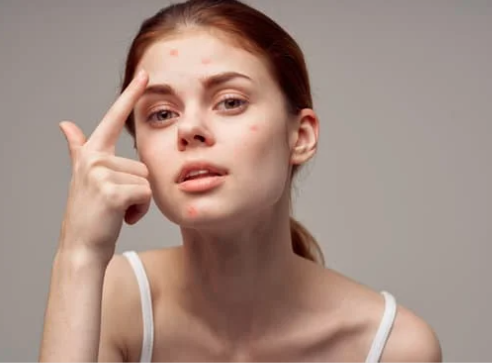
How can I prevent acne breakouts?
There are several ways to prevent acne breakouts. You can start by keeping your skin clean and avoiding touching your face with your hands. It is also important to avoid using oily or greasy hair and skin products. Wearing loose-fitting clothing and avoiding tight clothing can also help prevent acne breakouts.
What are the most effective acne treatments?
The most effective acne treatments include topical medications, oral medications, and light therapy. Topical medications include benzoyl peroxide, retinoids, and salicylic acid. Oral medications include antibiotics, hormonal therapy, and isotretinoin. Light therapy includes blue light therapy and photodynamic therapy.
Are there any natural remedies for acne?
Yes, there are several natural remedies for acne. These include tea tree oil, aloe vera, green tea, and honey. However, it is important to note that natural remedies may not be as effective as medical treatments and may take longer to show results.
What are the different types of acne?
The different types of acne include whiteheads, blackheads, papules, pustules, nodules, and cysts. Whiteheads and blackheads are non-inflammatory, while papules, pustules, nodules, and cysts are inflammatory.
What causes acne on the face?
Acne on the face is caused by a combination of factors, including excess oil production, clogged pores, bacteria, and inflammation. Hormonal changes, stress, and certain medications can also contribute to the development of acne on the face.
Is it necessary to see a doctor or dermatologist for acne treatment?
It is not always necessary to see a professional for acne treatment, as mild to moderate acne can often be treated with over-the-counter medications. However, if your acne is severe or does not respond to over-the-counter acne treatments, it may becxcome necessary to see a dermatologist for acne prescription medications or other treatments.
